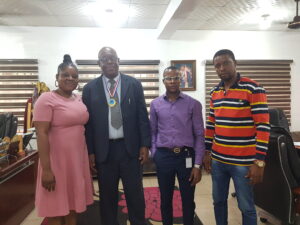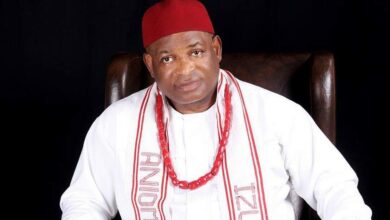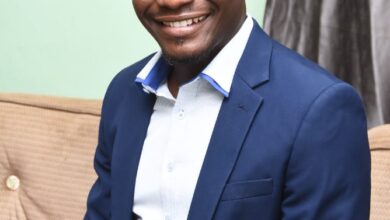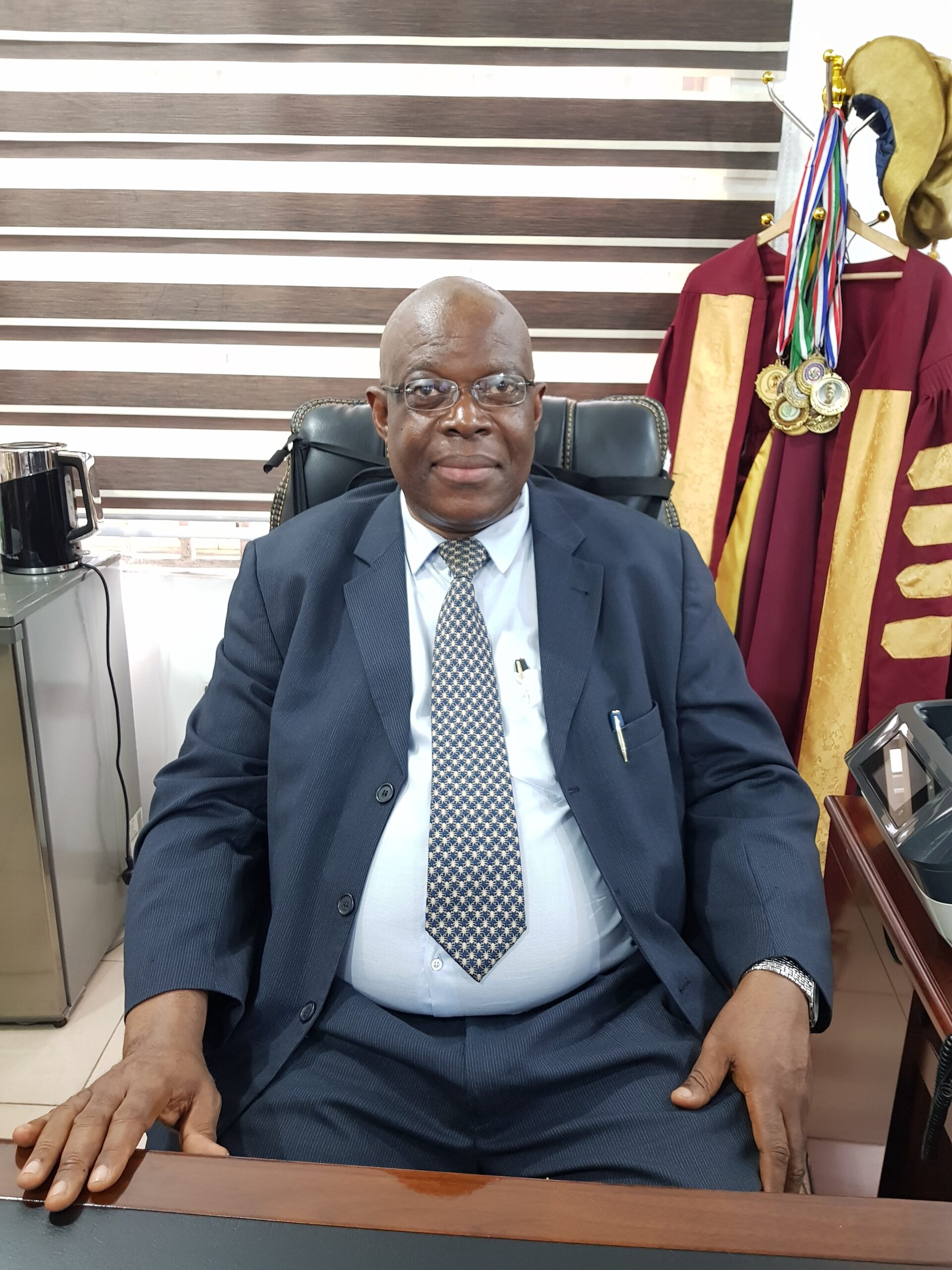
THE DIRECTOR, EMERALD ENERGY INSTITUTE UNIVERSITY OF PORT HARCOURT, RIVERS STATE-PROFESSOR CHIJIOKE NWAOZUZ
THE DIRECTOR, EMERALD ENERGY INSTITUTE UNIVERSITY OF PORT HARCOURT, RIVERS STATE-PROFESSOR CHIJIOKE NWAOZU
STRIDE ON PROGRESSIVELY; I WANT TO LEAVE A LEGACY OF CREATING A SUCCESSION PLAN FOR THE UPCOMING TOP PETROLEUM & ENERGY ECONOMISTS & FUTURE POLICY MAKERS IN THE SECTORS
An outstanding Midas achiever, peaceful, calm and very courageous. We are inspired to celebrate his remarkable life and accomplishment in Service. He is a man of enormous and proven integrity, tenacity and character. His passion about a united Nigeria is a common thread that runs through his sterling career in public service, which has remained so, till now. He maintains a height of moral, ethical, and other standards that people must strive to attain. Those within his sphere will always remember him with appreciation for his immense contributions and notable inputs to national development and the growth of true federation and democracy. He’s indeed fulfilled. Talk of great achievers in the African continent Professor Chijioke Nwaozuzu is a man with a glowing passion for excellence, and a disciplinarian by all standards. He is one Nigeria, who by virtue of his absolute dedication to the service of God and Humanity; he has affected positively the lives of Nigerians and Emerald Energy Institute, University Of Port Harcourt. He is a true public service genius. What else can someone say of this exceptional man of extra ordinary capacity for humanitarian and public service. A philanthropist of no mean order.His contributions to humanity is unequalled. No wonder, his impeccable records in career pursuits speak for him. The man has total life dedication to God, and has relied and still relying on God as the source of his strength.
His shield and seal, that pivots him in all his endeavors. Professional work experience spanning over decades in various capacities of service, rendering to the Nigeria Nation like a glorious ambience of green vegetation responding to the alluring fascination of an early morning sun. Professor Chijioke Nwaozuzu, in the course of his duty served equitable and has impacted lives in various ways across the country including Emerald Energy Institute University of Port Harcourt where he is presently serving as the Director.
In this interview, he listed factors driving Emerald Energy Institute, which are; the age of the students that is been admitted into the institution and the funding structure. The institution should be well funded especially from related government agencies that are fund making which are PTDF, Petroleum Technology Development Fund, organizations like Nigerian Content Development and Monitoring Board (NCDMB) even NNPC.They should have budgets and funding for capacity building for institutions like this that produce graduates that fit into the petroleum and energy industry.
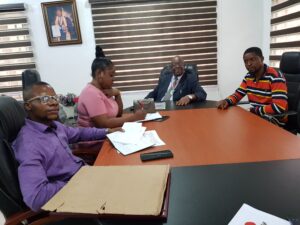
Excerpt:
Can we know you more?
My name is Chijioke Nwaozuzu, I hail from Mbieri in Mbaitoli Local Government Area of Imo State. I had my early education in Owerri and secondary school at Government secondary school, Oweeri. I had my higher education in Federal School of Art and Sciences, Aba. I then attended University of Nigeria, Nsukka (UNN) So, my early education was in Nigeria. But for my post graduate education, all of those were in the United Kingdom where I did my MBA at Edinburgh Business School. I also did an additional MBA in Oil and Gas management at the Centre of Energy and Petroleum, University of Dundee, and at that same Centre, did my doctorate program.
Can You Provide an Overview of the Research and Development Initiatives the Emerald Institute is currently involved in?
First, we have three (3) categories of programs here. We have the Post Graduate Diploma (PGD), MSc programs and the PhD programs and all these are in petroleum and energy economics. By petroleum, we mean Oil and Gas, by Energy; we mean Electricity and renewable forms of energy. The PGD and MSc students are supposed to deliver a DISSERTATION (a research project that leads to a write up). The PhD students are expected to carry out a research project that leads to a PhD THESIS. So, this is not a research institute, but it is an academic institution that awards degrees across those 3 programs (PGD, MSc, PhD) under the University of Port Harcourt in the specialized area of petroleum and energy economics. Now, for the lecturers, we try to apply for TETFUND research grants, and those applications are in our catchment areas.
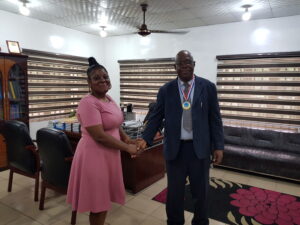
What are the Key Challenges You Face in the Institute and How does the Institute Address them?
There are two key challenges. The first one is the age of the students that we admit. Those students are mature students and 99% of them already work in the industry and are employees. Some are already engaged with work and families. For that reason, most of our courses are run online to accommodate their busy lives. So, we run the program from 6pm when they are back from work and end at 9 or 10pm which is 3-4 hours. So that is how we try to mitigate that problem. But for very mathematical courses, like applied mathematics, those courses are not easily thought online. The students must come to the Institute in person. But those courses are not more than 2. The second challenge is funding. You would expect that an Institute of this nature domiciled in a Federal University should receive funding from related government agencies that are fund making, by that we mean PTDF, Petroleum Technology Development Fund, organizations like Nigerian Content Development and Monitoring Board (NCDMB) even NNPC, they should have budget and funding for capacity building for institutions like this that produce graduates that fit into the petroleum and energy industry. Even Nigerian Electricity Regulatory Commission should have a budget for institutes like this because we produce professionals for the energy industry but not one single one of them support. As a result, we are solely dependent on and reliant on student fees. You can imagine how fee payment is in Nigeria and because of the irregularity; it is like working a tight rope for the Director. So, every time you keep prioritizing your payments against what has been paid in as fees. So, you think which payments should come first, should I pay lecturers salaries now or should I pay staff salaries now based on what is available. We think about which one should be the priority to execute at a given time while others wait in the queue until more fees are paid in. So, this is quite difficult to do on a weekly basis.
How Do You Ensure that The Research and Findings Produced by the Institute are Effectively Disseminated and Utilized by Relevant Stakeholders?
Students’ research output need to be disseminated, particularly when our students come up with something we think has policy implication for government or practice implications for the industry. Our catchment industry is petroleum and energy. We advise them to publish in relevant journals that will capture the nature of the work or problem that they solved. We also encourage our students to make presentations in conferences/seminars organized by relevant industry associations like the Nigerian Association of Energy Economics and Society of Petroleum Engineers (SPE). Some of these industry associations also have industries, companies that are corporate members who also send their staff to attend conferences. When presentations are made, it is a way of also disseminating some of the outputs of students work. Typically, there should be a flow of interaction between the academia, the government and industry, whereby the academia is funded for specific projectswhichshould be a policy issue that needs to be addressed. Like the issue of this fuel subsidy. So, the government provides grants for scholars to investigate that problem and come up with recommendations on solutions and how best to execute the recommendations. Also, the industries may have encountered a problem in practice and then they provide funds to the relevant institutes or centers to research into that and then come up with a solution. So those outputs should fit into government policies and the ones that are relevant to the industries will fit in the industries. That is how it is done in developed countries. It is called a government/academia/industry COMPLEX. That kind of interaction is not playing out here. So sometimes, the information that we disseminate which is from our students’ personal efforts can only be communicated to the industry when those Professional Associations hold conferences. So, there is a total disconnect between the academia and the government. Typically, those fund making organizations I earlier talked about, should be funding things like policy journals or industry journals, for research output dissemination.
What role does the institute play in fostering knowledge exchange and capacity building within the energy sector?
As I earlier said, in regard to knowledge exchange, that ventilation occurs when students make presentations, when some of these industry Associations hold conferences. But when it comes to capacity building, we used to have training programs for NCDMB, Shell petroleum, NNPC, etc.
What are the Future Goals and Aspirations of the Institute, and How do You Envision it Impact on the Global Transition to Clean and Sustainable Energy?
The difference between an Institute and a Center is that the institute hosts several Centers over time. So, this Institute will not be a different one. There are five (5) Centers that will emerge from this Institute, and they are Center for Petroleum Economics and Policy, Centre for Energy Economics and Policy, Centre for Petroleum Regulation and Policy, Centre for Energy Regulation and Policy; and then Centre for Green and Sustainable Energy and Policy. So, these 5 Centers will at some points be independent and have their own Directors and all. This Centre started business in 2014, we are roughly 9 years. It’s envisaged that those Centers may also have domestic and international partnerships to enable them to drive their objectives. That is the way we envision the Institute’s forward progression.
What Life Principles Have Brought You to This Stage of Life That You Are and How Were You Able to Manage All the Hurdles While Rising?
For me, success happens when two elements converge: PREPARATION and OPPORTUNITIES. For instance, I prepared myself to be Petroleum Minister of Nigeria, but the bad politics that we have, whereby a politician must be Minister have deprived some of us of the opportunities to do what we have prepared ourselves to do. So, we just keep watching. It is paramount that those TWO must happen that is ‘’preparations, and opportunities’’. So, for now where there is a convergence between my preparation and opportunities is this job, that is being the Director of this specialized Institute which is not a small task and I enjoy doing the work. There will always be hurdles along the way as you are preparing in line with your life purpose and then the objectives you pursue to live that purpose. Some of the hurdles will require you to re-strategize, reposition and rethink your objectives and come up with alternative objectives, and keep moving forward. You must make sure that you keep moving positively forward by making sure you overcome hurdles, rethink your strategies and come up with solutions to personal problems. You must keep your thoughts dynamic all the time. But you must overcome hurdles; the best ideas could come to you in your dreams or while having a shower or when you are having breakfast as the spirit leads. You must also be committed to your purpose, dedicated and hard-working. Opportunities will have to find you working.
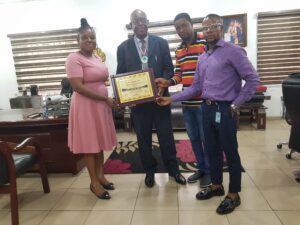
What Legacy Would You Want to be Remembered for?
What is reasonable to do is to say where I am, what can I do to leave a legacy? Tomorrow will come but that tomorrow, you do not know what is coming. As EEI Director, I considered that I should create what I call a succession plan for the next level of top professionals in petroleum& energy. I can do that, and I must do it. If you leave succession planning for government agencies like PTDF whose responsibility is to identify the bright petroleum and energy engineers and all those that relate to the petroleum environment and give them oversea training, they will apply political considerations and defeat the purpose. So, I thought I should have a scholarship scheme for potential students of MSc and PhD with CGPA of 4.8 – 5.0 in petroleum engineering, geology and other related subjects. I already have 3 of them here with 5.0 and about thirty something others with that range of CGPA’S. To have those CGPA’s at master’s level will mean that you had a 1st class in your BSc or a very high 2nd class Upper. You find out that top tier industry experts are ageing, people like me and my colleagues. When they leave, with this culture of mediocrity that has possessed our country, we may not have top level brilliant people to hold these sectors, so that is what I’m currently doing and will continue doing so we can now have people to hold up these industries if they would allow them. But the good thing is that 99% of my students are already in those industries, so they have no choice but to elevate them based on their qualifications. Hopefully, the MDs of Shell, Chevron, future Petroleum Ministers would then come from this group. The selection process for the scholarship is transparent, with eyes on CGPA’s of 4.8 – 5.0/5.0, irrespective of gender or tribe.
